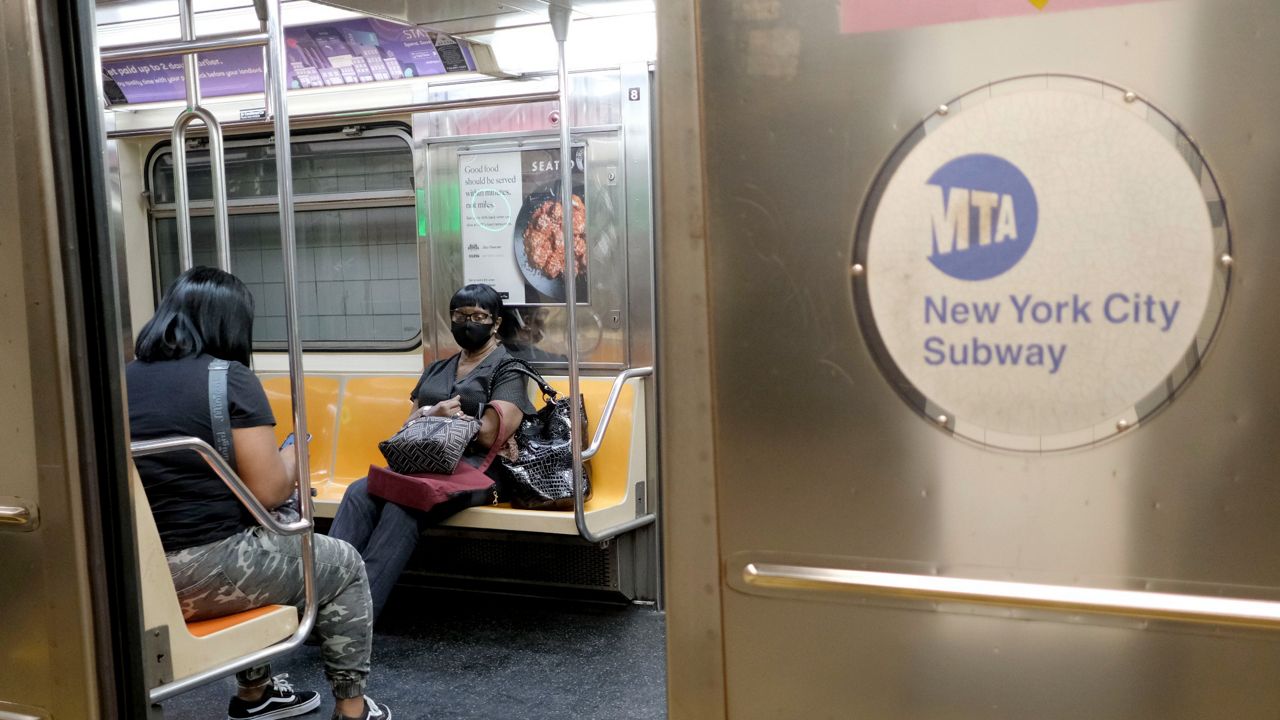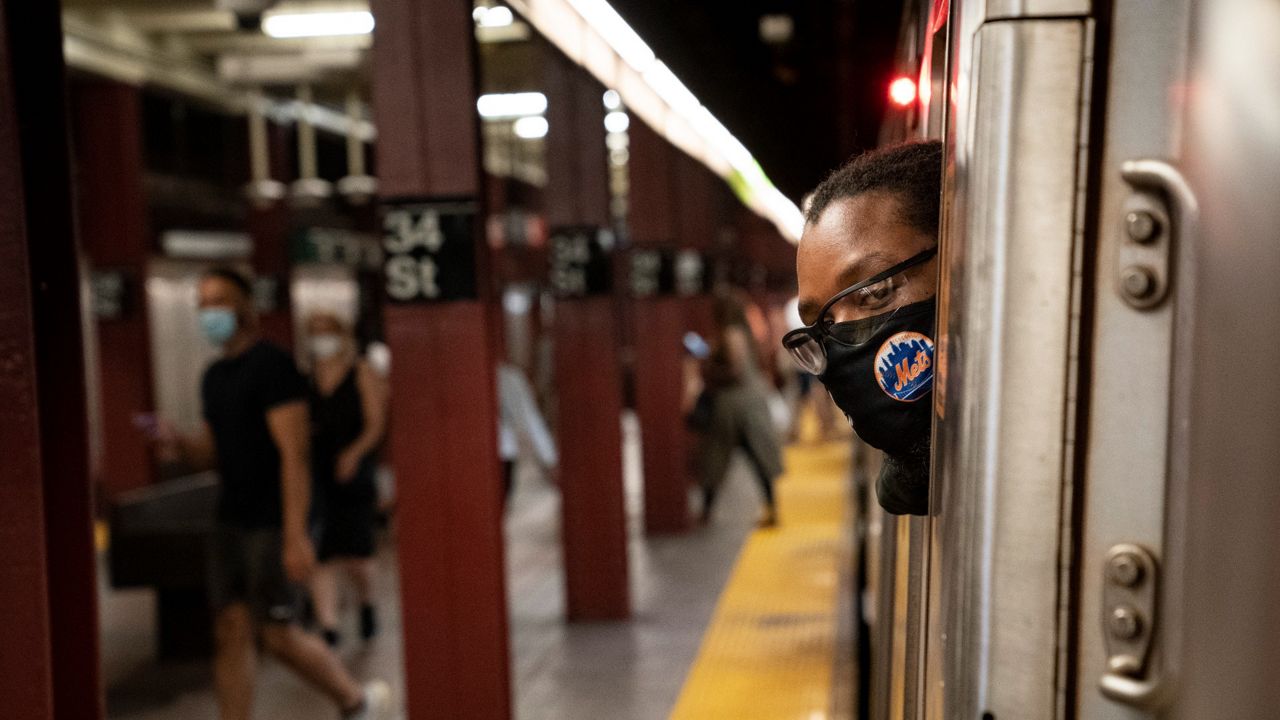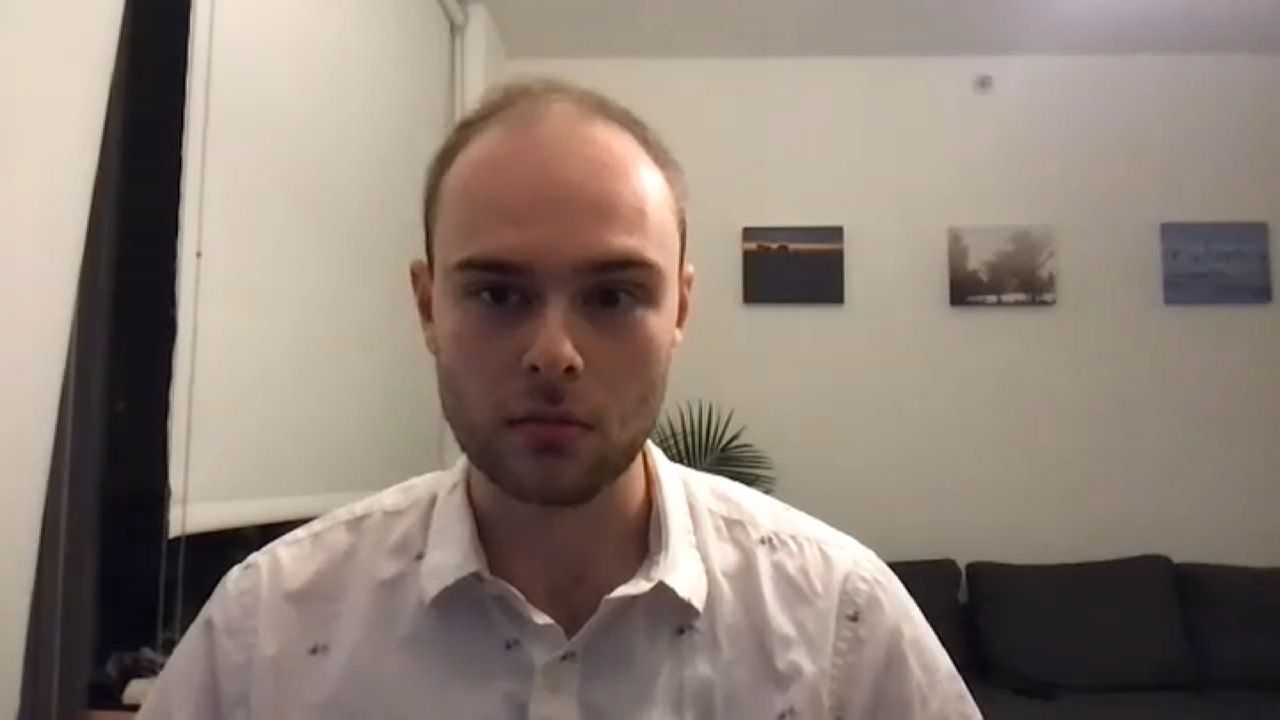NEW YORK — The MTA wants $12 billion to a cover a falloff in fare and tax revenues caused by the pandemic.
It's looking to Washington for a bailout. But experts say the agency could erase some of the shortfall itself.
What You Need To Know
- MTA is seeking $12 billion from the federal government
- Transit experts say MTA is likely to get some, but not all, of its request for federal aid
- MTA on Wednesday will present two budget proposals, including one without federal aid
- MTA has threatened to cut transit service between 40% and 50% without a federal bailout
"They need to do everything in their power to get their fiscal house in order and they also, even with that, will need federal aid," said Andrew Rein, president of the Citizens Budget Commission.
The MTA warns of nightmarish service cuts without federal aid.
Rein says the MTA could achieve big savings just by operating more efficiently.
The MTA spends $10.5 billion a year on labor and health care, 62% of its budget.
“If subway efficiency and bus efficiency were equal to other large systems, the MTA could save $900 million," Rein said. "The way to realize that is working in partnership with labor and the front-line workers to realize those efficiencies."
One idea: running subway trains without conductors, as most transit systems do. That could save $300 million in salary and benefits a year, although train operators likely would have to be paid more.
Another idea: streamlining repair shops. The Budget Commission says for every hour a subway car maintainer works, the subway runs for 34 minutes. But the Philadelphia transit system runs trains for 45 minutes with that same hour of work.
Another $86 million could be saved if the Long Island Rail Road ran as efficiently as Metro-North.
But MTA Bard Member John Samuelsen, president of Transport Workers Union, opposes renegotiating labor contracts. He suggested raising taxes on stock purchases and gas. Hiking the state gas tax eight cents a gallon would raise nearly $500 million a year. He also wants to cut consultants and contractors.
"A combination of both has the ability to save the MTA tens of millions of dollars a year, if not hundreds of millions of dollars a year," Samuelsen said.
The MTA raises fares and tolls every two years. The hike planned for next year is supposed to raise $153 million, a 4% increase in revenue. The details are still being drafted.
But with traffic increasing, the Citizens Budget Commission suggests raising tolls even more. According to the MTA, every additional dollar on the toll raises $270 million.
The toll is now $9.50 on the MTA's major bridges and tunnels without an E-ZPass.
An idea floated by the MTA: using $700 million in annual tax revenues earmarked for new equipment and construction for operating expenses. But that would risk the transit system falling into disrepair.
The MTA in a statement said it cannot cut its way out of its problem, and that all options remain to balance its budget, as required by law.
------
Did you know you can now watch, read and stay informed with NY1 wherever and whenever you want? Get the new Spectrum News app here.
-----
Further Coronavirus Coverage
What to Do If You Test Positive for COVID-19
Who Will Get a Coronavirus Vaccine First — And Who Decides?
How Hospitals Protect Against the Spread of Coronavirus
Coronavirus Likely Spreads Without Symptoms
Coronavirus: The Fight to Breathe
Experts Say Masks Are Still a Must
The Race for a Coronavirus Vaccine
The U.S. May Face a Second Wave of Coronavirus Infections
Cuomo Granted Broad New Powers as New York Tackles Coronavirus








